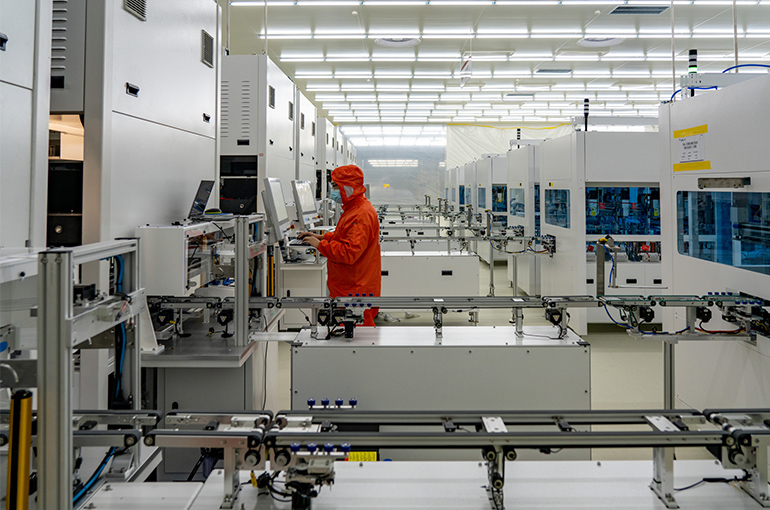 Chinese Solar Panel Firms Cut Investment in Reponse to Capacity Glut, Lower Prices
Chinese Solar Panel Firms Cut Investment in Reponse to Capacity Glut, Lower Prices(Yicai) April 12 -- Chinese solar power companies are scaling back investments to deal with excess capacity and falling product prices.
At least 16 photovoltaic firms listed on the mainland have canceled or delayed over CNY60 billion (USD8.3 billion) of investment projects since the fourth quarter of last year, according to data gathered by Yicai.
In the next decade, the sector is set to grow by 20 to 30 percent as the goal of carbon neutrality gets closer, Chen Gang, chairman of PV cell maker Aiko Solar Energy, said to Yicai recently. China aims to become carbon neutral by 2060. In the future, the competition will focus more on power and quality, Chen said, adding that poor-quality products are bound to be knocked out.
The rules of the game have changed, Chen said. He estimated that only five to six of the existing 10 industry leaders would stay after the ongoing industry reshuffle. Aiko also carried out organizational optimization recently. Chairman Chen said that it would be hard to survive if the firm did not quickly trim costs and increase efficiency.
Companies are starting to feel the heat. For example, Lingda Group, a developer of thermal power generation systems, recently scrapped an investment scheme of CNY9.2 billion (USD1.3 billion) after making big noise about venturing into solar power.
Moreover, Longi Green Energy Technology changed the development direction of its products in the upcoming base in Guangdong province's Jiangmen to back contact cells from tunnel oxide passivated contact cells so the project was delayed and production has not started yet.
Li Yueting, who joined Longi last year, said to Yicai that she has left the firm last month as she got tired of going back and forth between several bases in Jiangsu province while the construction of the Guangdong base took so long. Moreover, several other workers were fired.
Former Longi employees said that the firm may have laid off about 30 percent of its staff. On April 7, the company responded that the adjustment involved 5 percent of its headcount.
Longi optimized its structure and downsized due to falling prices and deepening competition, Chairman Zhong Baoshen said on March 21 in response to market rumors.
A continued decline in product prices has hurt producers' profits. The price of PV modules has fallen to CNY0.79 (US 1 cents) per watt this year after declining to less than CNY1 late last year whereas the price used to be CNY1.9 early that year.
Longi's net profit rose by 7 percent in the first three quarters of 2023 from a year ago while revenue rose by 9 percent to CNY94.1 billion (USD13 billion). In the third quarter alone, gains plummeted by 40 percent and revenue fell by 19 percent.
Established brands blamed new market entrants for the slumping prices. The sector welcomed a slew of new players during the boom cycle in 2021 when products were in short supply and prices surged.
In the past 18 months, companies added more capacity than in the past 18 years. China's production capacity of silicon materials, silicon wafers, and modules will each exceed 1,000 gigawatts by this year, according to PV InfoLink.
Editors: Zhang Yushuo, Emmi Laine